An Art teacher I had once approached to learn Calligraphy advised me to “share only that which is from my own garden”. He even wanted me not to paint Sufi dancers; just focus on painting Hindu deities! It was like someone was denying me access to Rumi. Can the beauty of a mystic be denied to those who do not belong to the same culture?
I am writing not on Kabbalah, but my experience of exploring Kabbalah, my limited understanding of it. Just as I write about my interpretation of Hindu scriptures, or the resonance deep within me of a Sikh Guru, or my insight into Jesus Christ’s compassion!
The first time I heard about Kabbalah was in the context of pop star Madonna. Later in a rather dark period of my own life, some online resources and books on the subject helped me stay afloat and even crawl out of that dark space. It was a period when I explored spirituality and religions looking for resolution of many issues that were personal to me. Though I am no longer surprised, I remain impressed by the commonality of the fundamental message of all religions. What I found even more staggering were the similarities in various concepts of Kabbalah from Judaism and some facets of Hinduism.
The concept of Reincarnation is central to the manner in which philosophy of life is explained by both Kabbalah and Hinduism. Whether it is to correct one’s tikun as per the Kabbalists or to alter the karmic cycle according to the Ancient Hindu wisdom, both emphasise on the concept of the soul going through multiple lifetimes, learning & evolving, learning to be closer to God and expressing their Godliness.
There are similarities even in the traditions from Kabbalah and Hinduism. As an example, the concept of wisdom being shared orally from the teacher to the student has been a very important aspect of both their histories. While neither need an intermediary to reach God, a teacher or Guru is essential in both in order to show the right path. In both the cultures there are Scriptures that cannot be attributed to specific people and also commentaries on those Scriptures by Saints that have attained the stature of Scriptures themselves. The Kabbalah offers instructions on how to lead a more spiritual life as well as become more connected with God; which is also the main purpose of the Upanishads, the study of which is integral to Vedanta. Vedanta is basically the philosophical foundation of Hinduism. Just as it is not necessary to be Jewish to understand and accept Kabbalah, the concepts of Vedanta are also applicable universally.
‘Kabbalah’ means to receive, not necessarily a book, but receive an understanding of the important books and concepts. The word ‘Upanishad’, though commonly understood as the Scriptures in Hinduism, means ‘sitting down near’ and have a dialogue, one that shall lead to an unfoldment and understanding within.
Looking closely one can find many similarities and of course many differences too. God is called ‘Ein Sof’ which means ‘without end’ in Hebrew. The Saint Tulsidas in his composition Ramcharitmanas describes Hari, an incarnation of Lord Vishnu, as ‘Anant’, which means unending. However, unlike in Hinduism, in Kabbalah I did not find the concept of a personal God & Deities with almost human attributes. While Vedantins discuss life from the highest standpoint of beingness, even they study and discuss the Bhagwad Gita, the main protagonist of which is God incarnate Krishna.
A.E Waite, who was a student of Kabbalah, designed the most popular tarot deck, Rider–Waite deck using the Ten Sefirot concept from Kabbalah and therefore people often connect Tarot with Kabbalah. Though most people use the deck to predict the future, the concept is not an acceptable one under the spirit of this system. As someone who has been helped immensely by the understanding of Kabbalah, I must admit that the seeking relief from Tarot is also something I have taken solace in from time to time. As an Artist painting Hindu Deities, I too was inspired to create pictorial cards to support people’s journey. I created Aavirbhaav, a system of Guidance and Meditation cards based on Vedanta. At the time I created this I was unaware of the connection between Tarot & Kabbalah. All I knew and believed is that even though the ultimate goal of all religions is to be more connected to Divinity, we need to overcome the niggling day to day issues using all tools available. So I have used Deities from Tantra, Astrology and many other systems and organized them under the Vedanta concept. Just as I have fused my understanding of life from various religions, deepening my own understanding of life, becoming more peaceful and helping others to reclaim their peace and harmony.
To be labeled, as a practitioner of any particular religion or sect, is an expectation I do not have, neither of myself nor anybody else. For a Healer the priority should be to heal, and for that he could take help from any stream be it Allopathy, Homeopathy, Ayurveda, Unani, Pranic healing or any other alternative stream. Similarly it has been my experience that all religions can help evolve if one were to truly understand and connect with their essence. After all isn’t the essence of all that we are all the same? As the Mahavakya (or great contemplation) from the Upanishad says – ‘Tat twam asi’, which means – ‘that is what you are’. Reminds me of a saying from the Torah that I have read – “The candle of God is the soul of man”, implying God’s light is in everyone. I always try to remember this when faced with situations and people that I begin resenting and judging!
When I recently brought up the subject of Kabbalah with a Jewish friend of mine, she quoted to me something very beautiful that her Rabbi back in the US had said to her: “Kabbalah is like a diamond to your ring, be very careful with it. You should only receive it when you are ready, not sooner, because otherwise someone may steal it.” I was reminded of a Sadhu once telling me something similar about Vedanta, that you will receive it only when you are worthy. And when you do receive it, you will soon receive a lot of worldly things too, both good and bad; to distract you from your understanding, so be careful!
If you have been fortunate enough to discover your connection with Divinity, I pray that you use everything you can access to deepen that connection. Yoga, Tantra, Kabbalah, Meditation, Namaaz, Chanting, Buddhism, Sufism, whatever works. Anything that helps make you a more peaceful, more harmonious, more compassionate being, making the world a better place, is good; that makes the world your own garden!

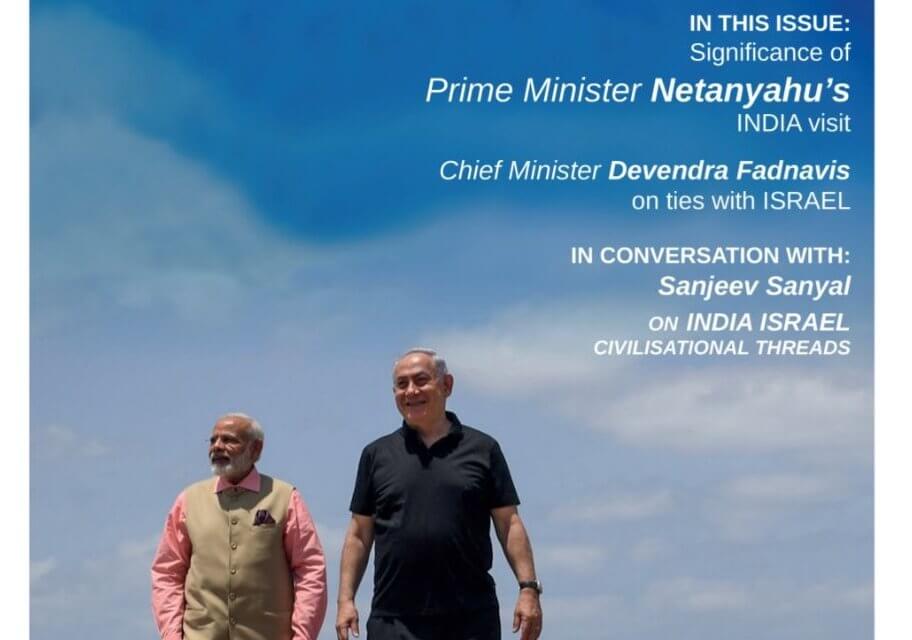
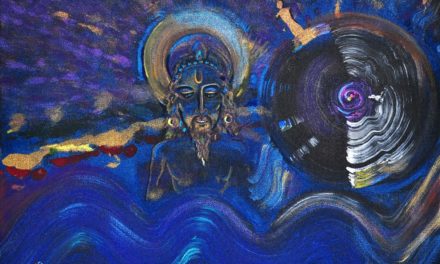
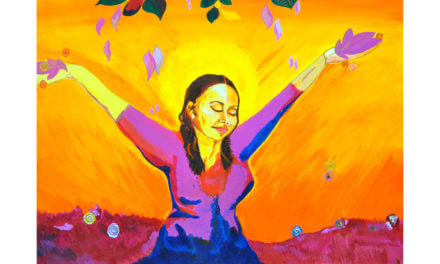
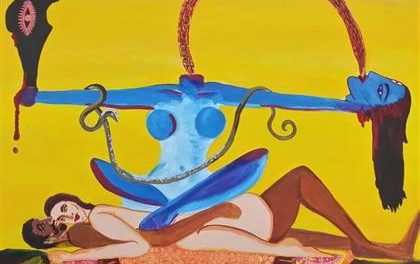
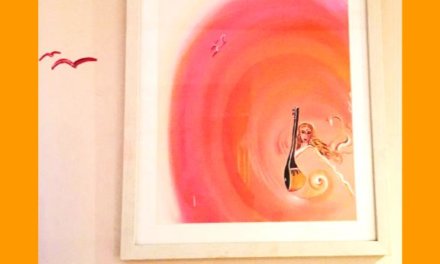
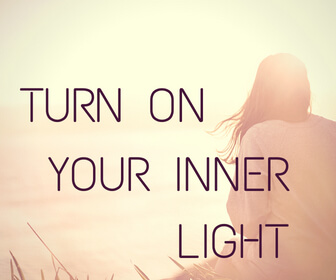
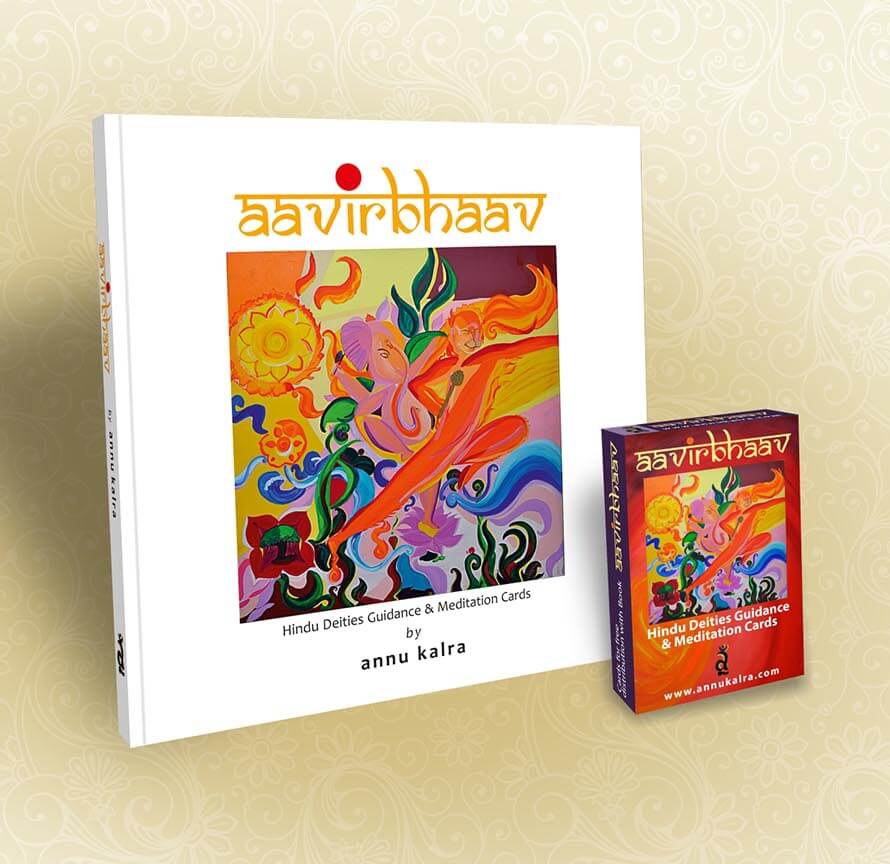

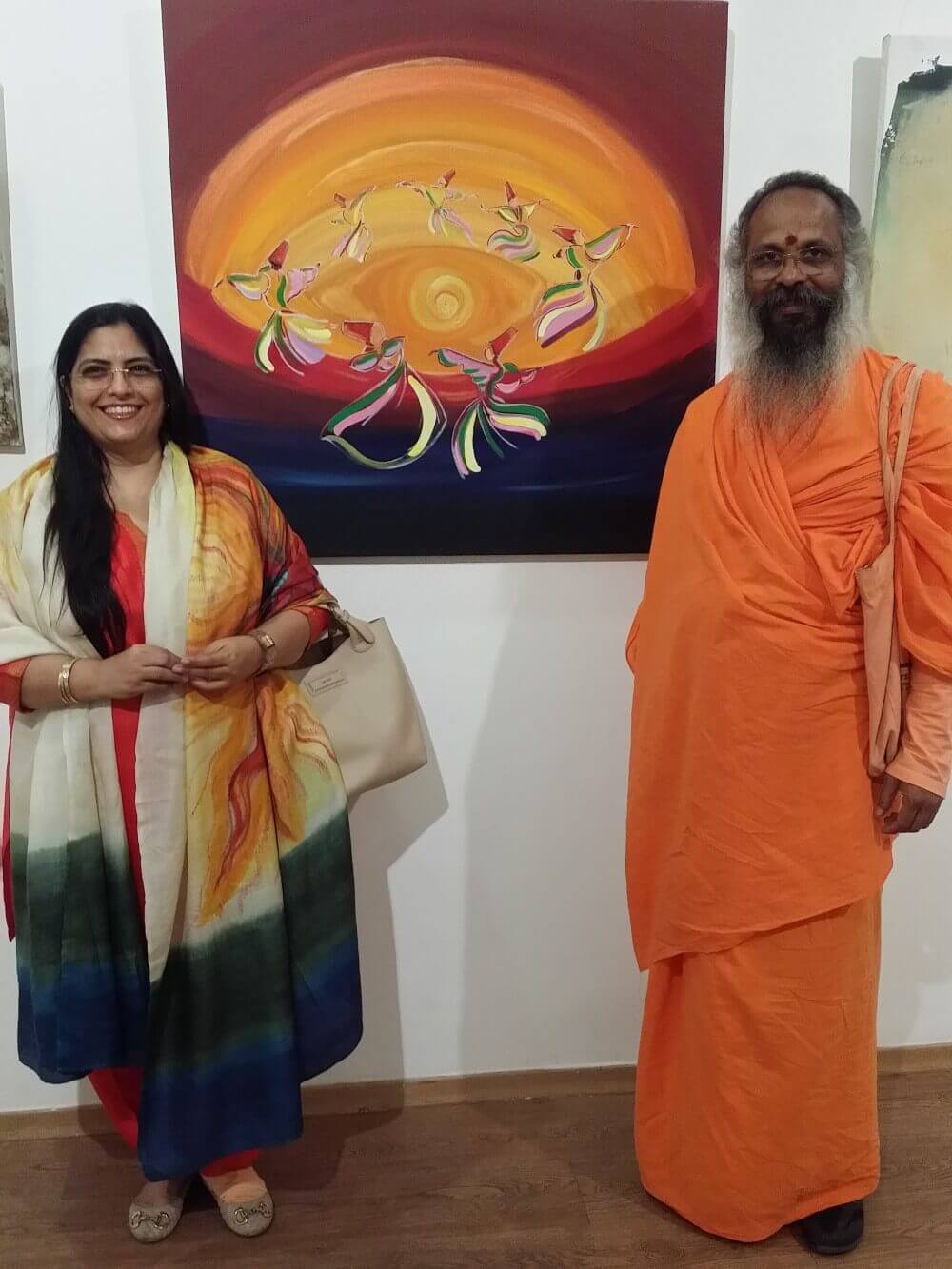
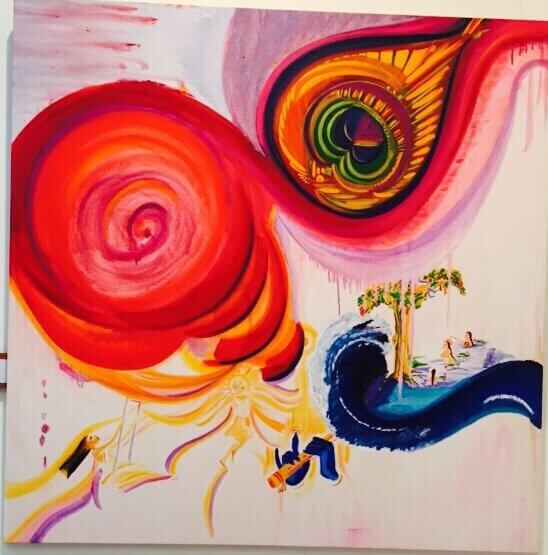

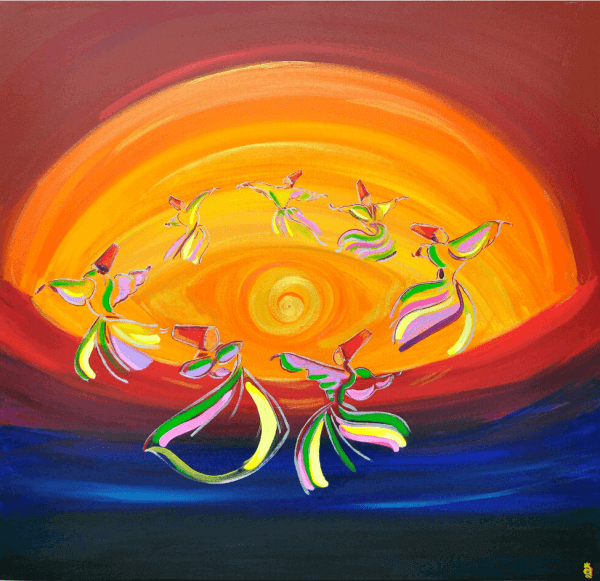

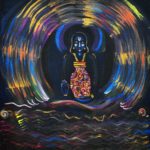
Self realisation of the divine within starts transformation a struggle but spirituality the bedrock to see the divine in one and then it happens you glimpse it everwhere no good or evil sides of the same coin just the diminishing and brightening of consciousness loved your interpretation thankyou!